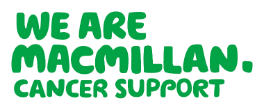Leaving hospital
You may feel concerned about how you’ll cope after you’re discharged from hospital. Many people worry they will be a burden on their family, but there are many people who can give different kinds of support.
You may need equipment such as hand rails or a stair lift, or help with everyday chores. You may need medical help to change dressings and give injections, or you may need more personal care to be able to wash and dress. Many people may simply need emotional support or someone to talk to.
Your needs will be assessed in detail by a team of professionals including a ward nurse. This includes details about the support you will receive at home including where and how often you will receive it, contact details for all health professionals involved and who to contact in emergencies.
Your relatives or carer will also be involved in your needs assessment to ensure they will also receive the support they need. You will only go home when the hospital staff are happy you and your carer will manage.
Discharge checklist
Before you go home, you may find it helpful to check the following:
- do your family and carers know when you are going home?
- can someone take you home or has your hospital transport been arranged?
- will there be someone to meet you when you get home or do you have keys to get in?
- will there be food in the house and will the heating be on (if needed)?
- do you understand how to take any drugs or dietary supplements you need to take at home?
- do you know when your next outpatient appointment is?
- do you know what care has been arranged for you when you go home and how to contact everyone?
- do you have a contact number for your hospital team?
- do you have all the equipment or supplies you need to use at home, such as continence pads or stoma bags?
- has your GP been told about your discharge?
- have you been given a letter summarising your care in hospital?
- have you been given a statement of fitness for work (previously known as a sick certificate), if you need one?
Help after you get home
Health professionals who can help after you have left hospital may include:
- a district nurse who can arrange all your nursing care such as dressing wounds, injections, taking stitches out, and helping with managing stomas, catheters or feeding tubes
- an occupational therapist who can provide equipment or changes to your home
- social services who can arrange meals, personal care and advice about benefits
- a palliative care nurse who helps control symptoms caused by cancer such as pain
- a physiotherapist who can help get you moving and supply aids such as walking frames
Your GP should also be told about your treatment and given details of your medicines. You will be given advice about who to contact if you have any problems or questions.
Many people may find they also need emotional support after they leave hospital. If you’d like someone to talk to your nurse or doctor can refer you to a counsellor. There are also many patient support groups across the UK and online. Some charities also provide emotional and practical support.
Last updated:
19 March 2024

